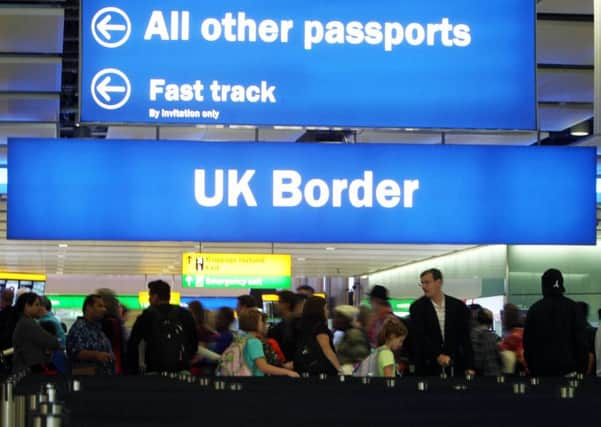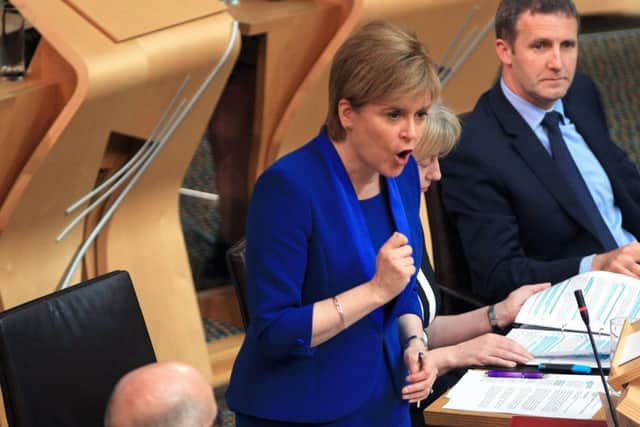Fears for post-Brexit Scots economy after EU migration plummets


Nicola Sturgeon has now renewed calls for Holyrood to gain control over immigration to attract much needed workers to Scotland.
Overall UK migration fell to 246,000 in March – a massive fall of 81,000 over the year, official estimates yesterday showed.
Advertisement
Hide AdAdvertisement
Hide Ad

More than half of the change can be accounted for by a 51,000 decrease in net migration of EU citizens, the Office for National Statistics said. The number of EU citizens leaving increased by 33,000 year-on-year to 122,000 – the highest for nearly a decade.
Business leaders warned of dire consequences if the much-needed immigrant workforce continues to fall away. “We know because of the demographics of our population that we have perhaps an even greater need to attract skills, the best and brightest talent from across Europe and the world,” the First Minister said.


“That is one of the reasons why I no longer think we are best served by a one-size-fits-all immigration policy.
“Not just for Scotland but perhaps for London and other parts of the UK, there needs to be more flexibility to decide what is right for the needs of our own economies.”
The figures revealed a particularly sharp rise of 17,000 in departures of citizens from the so-called EU8 countries which joined the union in 2004 – Czech Republic, Estonia, Hungary, Latvia, Lithuania, Poland, Slovakia and Slovenia.
At the same time there was a 19,000 decrease in immigration from the EU, although this was not “statistically significant”.
Scotland’s soft fruit industry has already warned that the impact will be severe if EU workforce numbers dry up and it emerged yesterday that a survey of food firms found 31 per cent said they had already seen workers leave.
The Food and Drink Federation said up to a third of its businesses could become unviable if this continues.
Advertisement
Hide AdAdvertisement
Hide AdIan Wright, its director-general, said: “It is only a matter of time before the uncertainty reported by businesses results in an irreversible exit of EU workers from these shores.
“Without our dedicated and valued workforce we would be unable to feed the nation.”
International migration for work remains the most likely reason to move people are now more likely to move if they have a definite job, rather than to just look for work.
A spokesman for the Institute of Directors said “no-one should celebrate these numbers”.
“Without the three million EU citizens living here the UK would have an acute labour shortage. Signs that it is becoming a less attractive place to live and work are a concern.”
Matthew Percival, head of employment at the CBI, said EU nationals made a “crucial contribution” to the economy.
“This latest data reflects a trend many businesses have seen – an increase in the number of EU citizens leaving the country,” he said.
